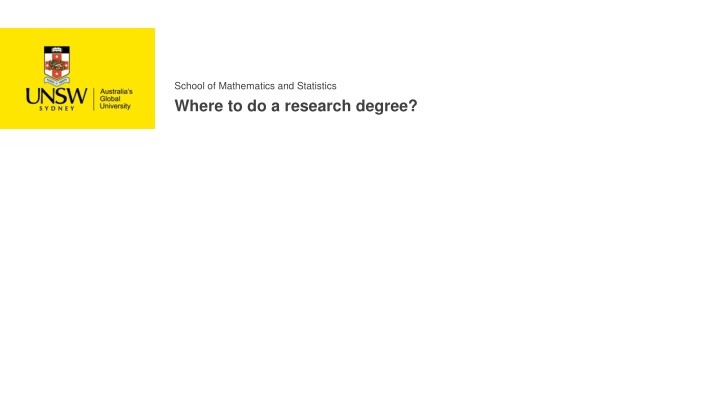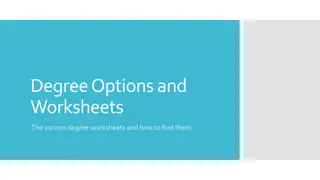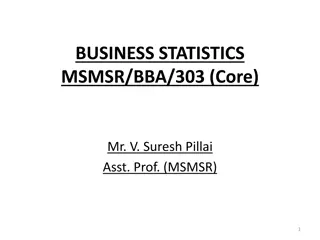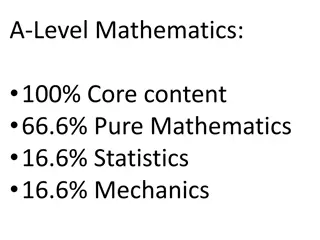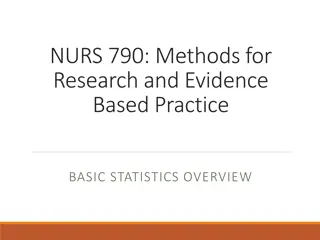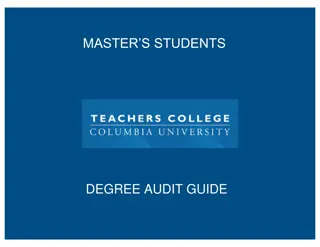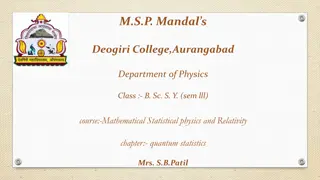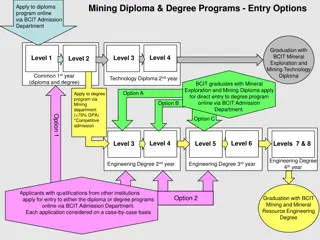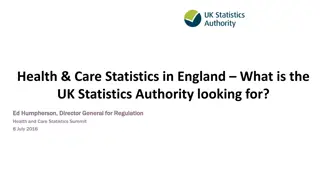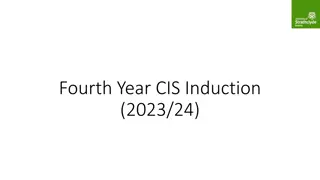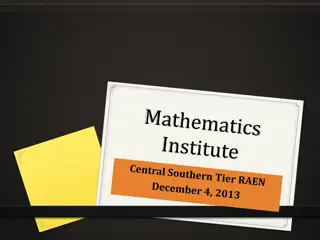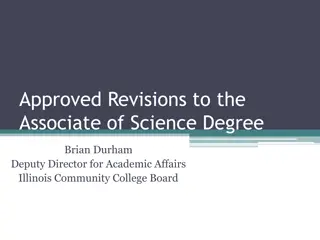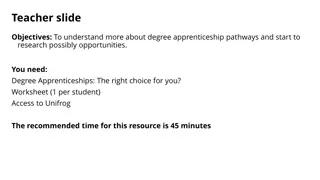How to Choose a Research Degree Program in Mathematics and Statistics
Discover how to select a research degree program in Mathematics and Statistics by exploring potential research topics, selecting supervisors wisely, applying to universities, and exploring scholarship opportunities. Make informed decisions to enhance your academic journey.
Download Presentation

Please find below an Image/Link to download the presentation.
The content on the website is provided AS IS for your information and personal use only. It may not be sold, licensed, or shared on other websites without obtaining consent from the author.If you encounter any issues during the download, it is possible that the publisher has removed the file from their server.
You are allowed to download the files provided on this website for personal or commercial use, subject to the condition that they are used lawfully. All files are the property of their respective owners.
The content on the website is provided AS IS for your information and personal use only. It may not be sold, licensed, or shared on other websites without obtaining consent from the author.
E N D
Presentation Transcript
School of Mathematics and Statistics Where to do a research degree?
Where to do a research degree? Well really the main questions are: What should you do a project on? Who should you choose as your supervisor(s)? You need some idea about how to answer the first question in order to answer the second. Note Which university should you study at is not in the above list it is not the right question!
What should you do a project on? If you have a well-developed project idea, great! If not: What areas of maths/stats do you find most interesting? Maybe browse some key journals (e.g. Journal of the American Statistical Association) to get a sense for the breadth of options. Or see what types of journals you find more interesting (Journal of Nonparametric Statistics or Environmetrics?) Try to go to a conference to see people talk about research and maybe meet them. (e.g. the School Postgrad Conference at UNSW is held every June)
Who should you choose as supervisor(s)? Your supervisor(s) should satisfy the following criteria: Live somewhere you wouldn t mind living (and preferably, work at a good uni) You feel comfortable talking to each other and feel like you understand each other well They are engaged, keen on the idea of supervising you They are renowned as a good researcher Have they been awarded grants or awards? Do they mostly publish in good journals? (Search the journals on Scopus, check if they are in the top 10-20% for their field) They are a good supervisor Talk to their current or past students. Do they make time for you and respond promptly to your e-mails?
How do you apply You apply directly to the university where your main supervisor is based. In Australia, your application needs to nominate a supervisor and describe a project proposal (a page is usually plenty).
Scholarships That s right you can get paid to do a research degree! Local students who get first class Honours (or equivalent) can usually get government funding, about $27K per year tax free. UNSW offers an additional $5K+ top-up. International students can also get the same scholarship, but less of them are available so it is much harder to get (usually you need to get the equivalent of an Honours mark of 90+ to be competitive, a published paper or two helps). Some countries offer scholarships to study in Australia, or joint scholarships with UNSW (e.g. China, Pakistan) How to apply for a scholarship varies across universities, at UNSW you apply at the same time you apply to enroll.
